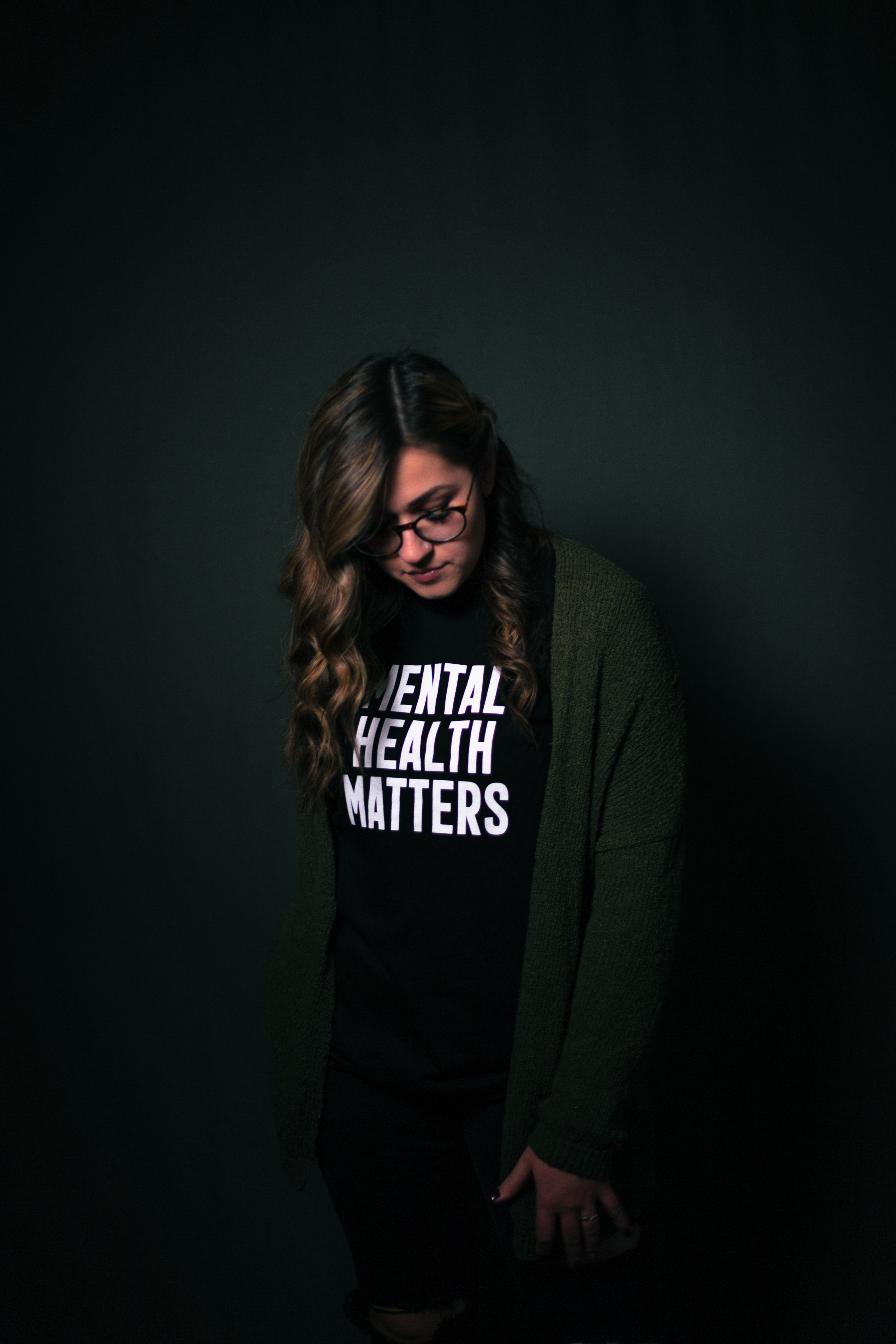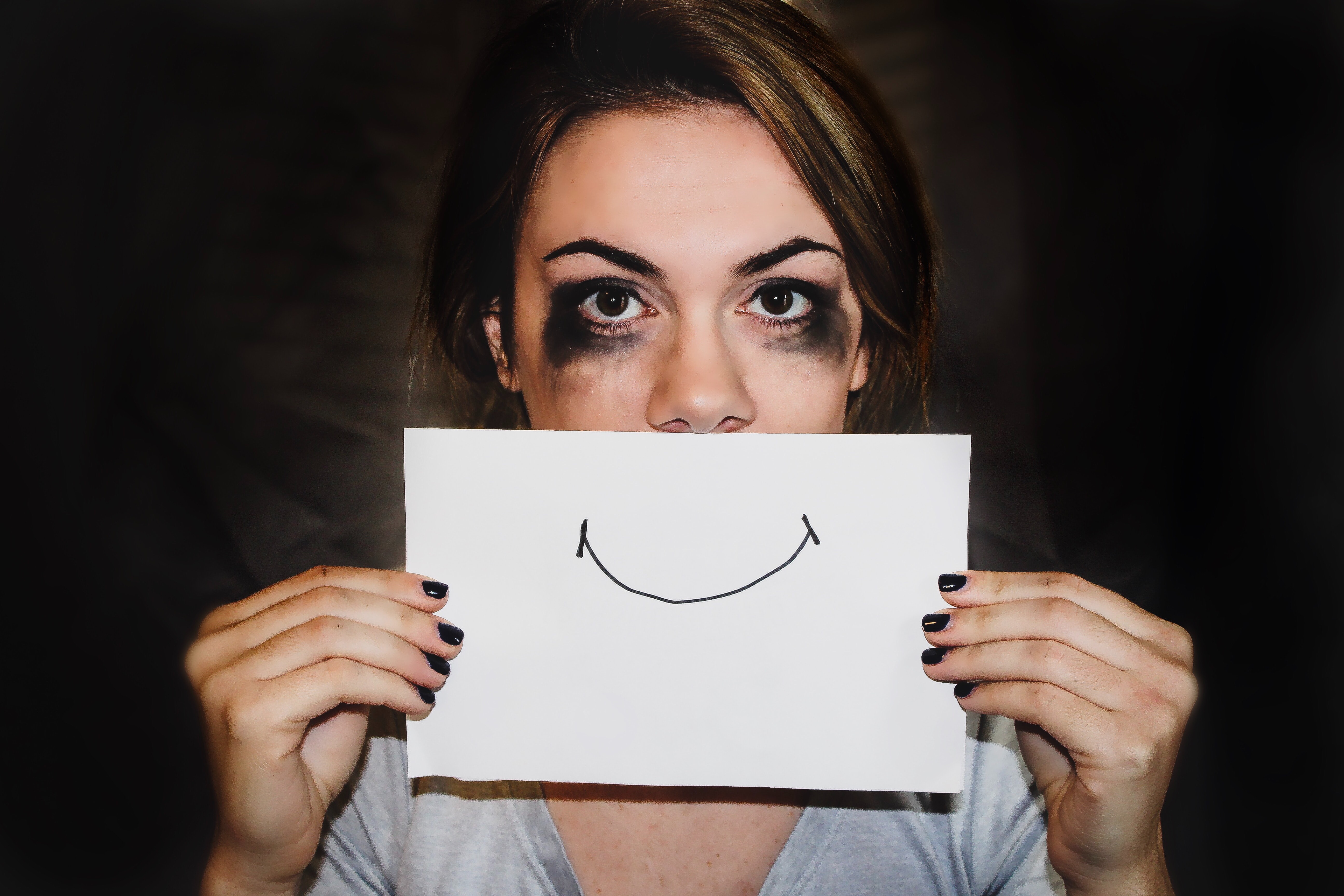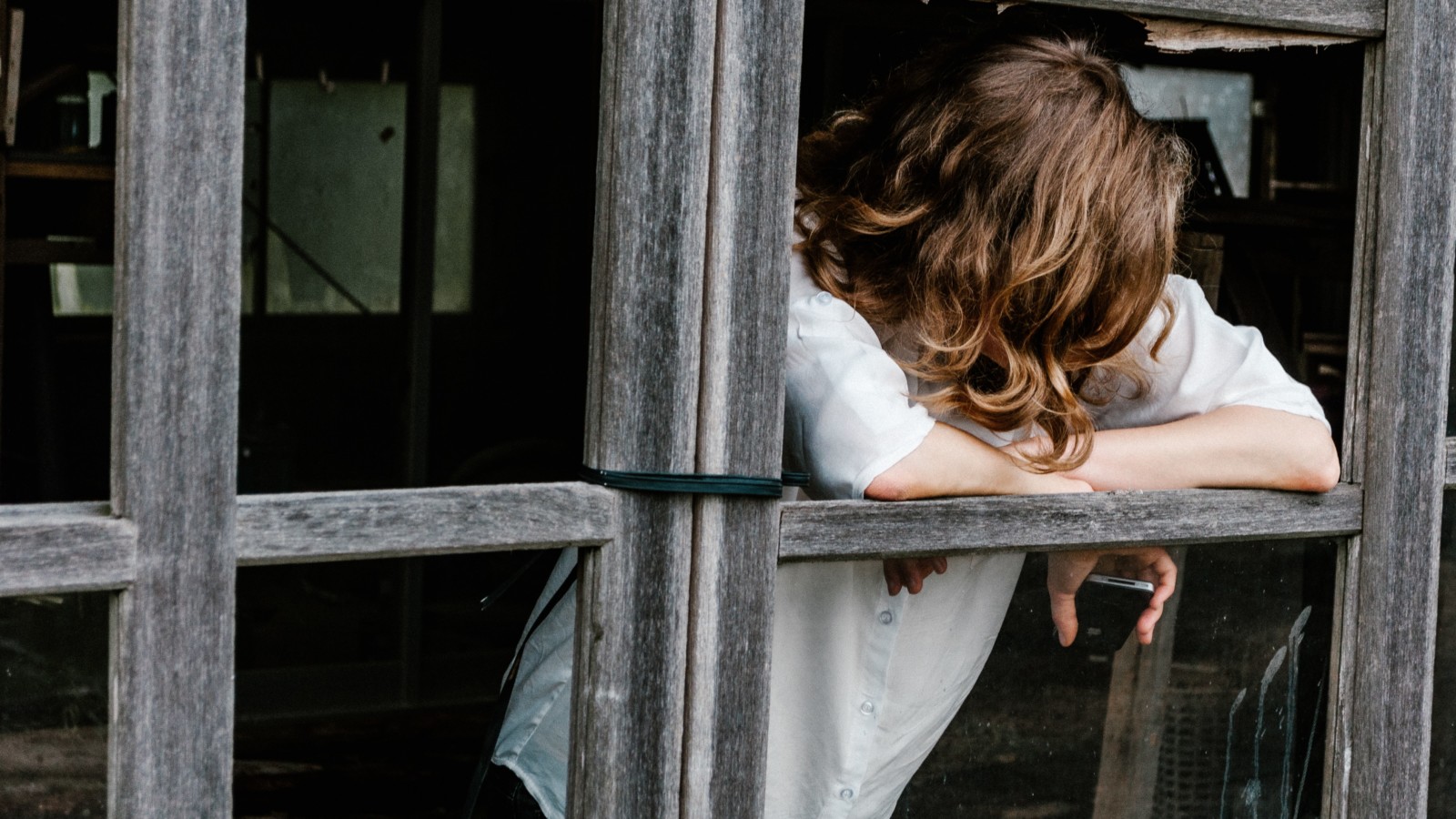The stigmas around anxiety and around mental health in general are huge issues in society today. Although more people are starting to open up and talk about their journeys, there is still so much work that needs to be done. My goal by sharing my story is to start the dialogue, initiate difficult discussions, and bridge the gap between what people THINK they know about anxiety/mental health disorders and what is really going on.

Ever since I was young, whenever mental health disorders were discussed, it was always “something is just not right with that person.” If I watched something on tv that related to someone with a mental health disorder, it was always “that person is crazy” or “they need to be locked up in a mental institution” or “we need to force all these crazy meds down their throat.” While this may be the case for some sufferers, it is not the case for the greater majority.
If these are the types of messages, you were used to seeing or are used to seeing, then I understand how the stigmas you hold continue to dictate your thoughts and beliefs around anxiety and mental health disorders. But just like with everything in life, there are always two sides to the story. Continuing to absorb and spread this information is just propagating the stigmas, and it needs to be stopped.
Unfortunately, I think a majority of the work that needs done all starts at the source, with the source being those afflicted with anxiety (or insert your disorder here). The problem with that is, we are the ones being stigmatized, which can create the need to close ourselves off and bottle up our frustrations internally. However, in order to see change, we must create that change.
We must blaze the path forward for those following in our footsteps.
I have found that the best way to start is by having open conversations with the people closest to you. Since I have started sharing my story with friends and family, I cannot tell you how many times people have been surprised to hear what goes on inside my head. Anxiety sufferers, we are chameleons, silent sufferers that can change their “appearance” at the drop of a hat. And when we can’t…we hide.

What I mean by that is, I can literally be having a panic attack at home over just about anything, but then it’s time for dinner with friends. Okay! I get dressed, put on my happy face, and go out and have the time of my life, while still continuing to freak out about what it is I’m freaking out about. When I get home, the façade falls off, and I am back to openly freaking out in the privacy of my own home.
Quit that shit! It’s bad for you, and it’s bad for the rest of the community. Open your mouth. Friends and family aren’t mind readers. If you do not explain what is going on inside, they may never know. Are you having doomsday thoughts because you left your Christmas tree on, and you are scared your pet will jump on it while you are gone and knock it over, starting a house fire? Are you sitting at home repeating over and over again in your head a conversation you had with someone at work earlier in the day trying to figure out what it all meant? Hell, are you overthinking how many glasses of wine you can have it dinner to make you seem normal even though the alcohol will make your anxiety worse? Yeah, me too.
But, it’s okay! Talk about it. Once I started talking about it with my friends:
- I started feeling a lot better just talking about what was worrying me. Sometimes people have great advice you never knew you could get.
- They started to understand why I acted the ways I did sometimes. Maybe I would cancel plans. Maybe I would leave really early for no reason. Maybe I would be in a bad mood and say something rude without a cause. I did those things because I was uncomfortable. Now that they know what’s going on, I don’t do those things anymore because I feel trusting.
- I started to show them that people with anxiety ARE NOT CRAZY. We are normal human beings who just like to think and worry way too much. We are high functioning individuals – doctors, lawyers, accountants, teachers, coaches, etc. Anxiety does not discriminate, so you can’t just label someone “so and so must have a mental disorder because (insert something rude here).”
- Most importantly, people started to share with ME. By talking about mental health and anxiety with my family, friends, and acquaintances, I felt so much less alone. I always felt like I was the only person I knew with a mental health issue. False! At least half of my friends have now admitted to suffering, some of them not even understanding that it was an actual disorder that can be named and worked on. This is the whole entire point. De-stigmatization starts with a conversation.
Do you see now how the smallest conversations can make the biggest impact? As dialogue developed between friends and family, we were able to talk about what types of symptoms we have and what tips and tricks we have for overcoming an attack. We talked about how long we have been suffering and what triggers us. Having those conversations has been so gratifying.
Another side effect of these conversations is friends sharing publicly. As soon as I started to share publicly, which by the way is really scary but totally necessary, I started seeing friends sharing. The ripple affect is huge. I was getting messages from friends telling me all the good feedback they received from their community, just as I had from mine. Now we just hope and pray that someone they shared with will share their story and the ripple continues. This is how we combat the stigmas.
One other critical stigma around anxiety and mental health disorders that we absolutely have to combat is the stigma around medication. I had always thought being on anxiety medication was some kind of death sentence. How the hell did you let yourself get this bad? I would ask myself, and then swore to God if I got myself in the mess, I could get myself out. That is not always true. Mental health is chemically driven, which means your brain might be a little out of whack and need help.
There is no shame in that, or well… there shouldn’t be.
I openly admit, my first experience with medication was absolutely terrible, so I swore them off for good. That was, until my anxiety got so bad that I couldn’t continue onward without them. Funny how life works like that. After having a full mental breakdown, I finally caved. And you know what, I’m glad I did.
What I was lacking the first go around was proper information, which I now receive from a psychiatrist, not Dr. Google or my general practitioner. I went from not understanding why I felt more anxious, could not sleep, nauseous, buzzy and weird to understanding that there are transient side effects that exist. Those side effects last a few weeks and then generally go away. Knowing this helped me stick out the journey.
I also learned that it can take months to find the right medication. I didn’t understand this before. I thought it was a one size fits all. If the first one didn’t work, then none of the others work. Not true. It took me three medications with numerous dosage changes to figure out the right fit. The fact that I knew this was possible, gave me the determination to keep going with the process.
More importantly than knowledge, I was absorbing misinformation and lacking support. When I asked about meds on my social media platforms, I got a lot of naysayers. “Meds are terrible.” “Meds make you feel even more insane.” “Medication is a crutch.” “You can get better on your own.” Man, I really wish I told some of those people to “shut up,” but I didn’t know any better.
The second go around, instead of reaching out to Facebook or Instagram, which is totally cool if you want to, I reached out to my therapist and friends I knew already took medication. I learned that sometimes you just need them! Our bodies cannot always put our brains back in balance on their own, especially not when you’re living at your threshold every single day.
Plus medication is not a forever thing, at least it’s not necessarily meant to be one. Just because you start a medication, does not mean you’re doomed to taking pills forever, and even if you do take them forever, it’s fine. That’s why we use them. Most psychiatrists and therapists will tell you that they are a temporary fix for a long term gain.
I think it’s really important to share the commonality and usefulness of medicating for mental health disorders.
Not taking advantage of medication may keep you or someone else from making the progress they want to see in their lives. Sometimes taking medication allows you to do the work in therapy you’ve been trying to accomplish for years without making progress. When you aren’t in crisis every day, everything becomes clearer. You can start to see the path forward and take the steps down the yellow brick road.
We must stop making it so scary for people to give them a try or to ask a mental health or medical professional about the option to use medication. We need to educate our friends and family on the effects and what a journey with anxiety medication looks like because that’s what it is. It’s a journey. By sharing honestly about taking medication, we are giving others permission to ask the questions and to seek real help that they may otherwise miss out on because of fear. This is so important.
What this all boils down to is communication, better communication than we have now. Stigmas cannot be broken without having conversations about why they exist and how we move forward. And they absolutely cannot be broken without education. We need to educate the world around us about how we feel, why we feel it, and how we make it better. By sharing this information, we are inviting others to do the same and potentially saving a life or two.
We must be brave and lead the way into the unknown without looking back. That is how we combat the stigmas.
Share in the comments: What is a stigma about mental health disorders that you wish would be eradicated?


